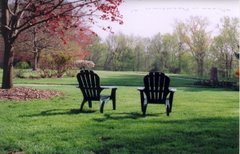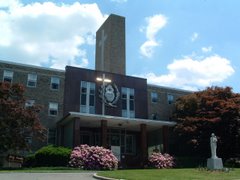
I recently watched one of the wilderness survival shows on the Discovery channel. The guide demonstrated how to extract himself from a pit of quicksand. I was immediately captivated, because from a few of the Tarzan-like movies I watched as a child, I was very unsettled by the notion that you could mysteriously sink through the ground. I was very grateful that I didn’t live in the jungle. OK, back to the show, without warning the guide just walked onto the quicksand pit. As he started to sink he did what I expect anyone would do, he started working to lift his feet out of the sand. And the harder he worked the further into the pit he sank. By the time he was waist deep he was breathing heavily and really straining, but his situation was only becoming more desperate.
This will seem like an odd turn, but his situation reminded me of the Christmas season, well, minus the life or death consequences. In anticipation of Christmas each year I voluntarily walk out onto that competitive, consumeristic pit of quicksand; fighting for a parking space at the edge of the lot, competing with the crowds for those precious Christmas presents, and scheduling my calendar with every possible event. And it seems the harder I work at it, the more I’m pulled down into the stress of it. And it’s obviously not just me. There are more radio and TV bits about stress during the Christmas season than at any other time of the year. We all talk about it as we stand out in the pit struggling and sinking.
I did, however, do something this year that I haven’t done in a while. I listened to an old Advent reflection tape by Fr. Richard Rohr, O.F.M. The two talks are entitled, “What are we waiting for?” And, “How do we wait?” I had listened to them years ago, and of course, forgot about them. This time of year offers the most dramatic example of how counter-cultural our Christian faith is. At the very time that our culture entices us into the frenzy of comsumerism, our Advent tradition challenges us to slow down and enter into a quiet time of reflection on our relationship with God and with all of God’s creation. Fr. Richard talked about the second line of the “Our Father”, which is, “Thy kingdom come, thy will be done.” He said that we have to empty ourselves before we can expect to be filled. We can’t expect God’s kingdom to come until we are willing to let our kingdom to go. He described our kingdom as our over-attachment with our ideas and feelings. We tend to think our way of doing things is the right, or best, or only way. Can we let go of that, detach from it, and be truly present to another or to a different situation? The paradoxical challenge he offers us is to “care but not care.” Can we detach from the struggle? Can we find peace even when the situation is not perfect?
The funny thing is, the wilderness guide used some of Fr. Richard’s principals to get out of the quicksand pit. As he sank in above his waist he stopped and began to explain what was happening. He said that everyone’s intuitive response is to work hard to counter the feeling of sinking, but it’s actually the hard work that causes you to sink even more. What you have to do is relax, lie down and slowly raise your legs to the surface so that you are completely outstretched on top of the pit. Then with your arms extended, and bent at the elbows, you shimmy across the surface until you reach solid land. He demonstrated his instructions and successfully extracted himself from the quicksand.
My Christmas wish is that you can detach from the commercial and even the family stress of this season, and detach from your expectation of the perfect celebration. I hope that you can relax and fully extend yourself to others, to be present to them in a peaceful way. And I hope that this Christmas you find solid ground.
Bill Walsh







